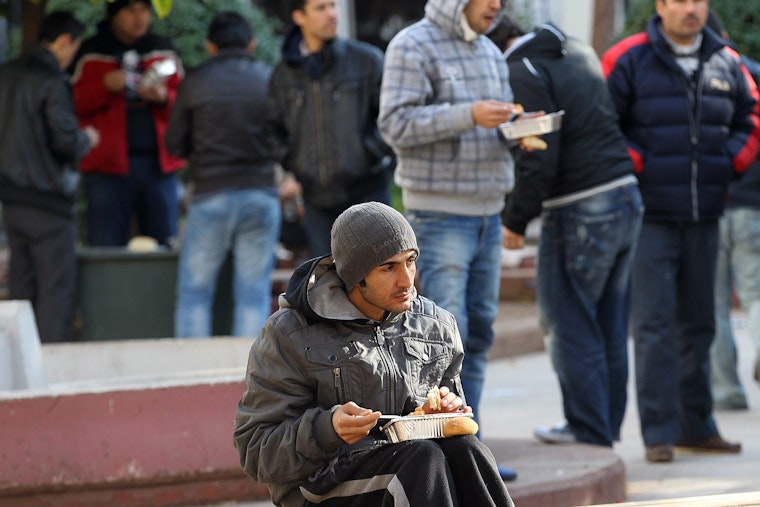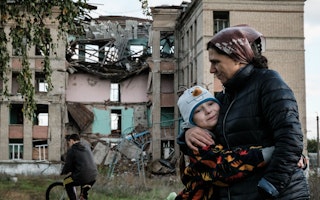Greece’s Public Health Crisis Is Hitting Migrants Especially Hard
By Nicole Kakantoussi & Marios Atzemis

Since the global financial meltdown of 2008 and the outbreak of the Syrian civil war in 2011, Greece has been buffeted by two enduring crises: severe cuts to the public health system and other benefits under government-imposed austerity measures, and an influx of migrants and refugees seeking a safe haven in Europe.
The migration situation has been covered extensively in the media. Less well known are the consequences of the budget cuts to Greece’s public health system. After the financial crisis, HIV infections skyrocketed nationally—especially among people who use drugs.
Figures from the Hellenic Centre for Disease Control and Prevention show that the number of people diagnosed with HIV in Greece almost doubled between 2010 and 2012, from 642 diagnoses in 2010 to 1,147 diagnoses in 2012—with 519 of these attributed to injecting drug use. It has taken four years of emergency response and ongoing public health interventions to bring figures back to 2010 levels.
As a result of the public health and migration crises, stigma and discrimination against migrants and people who use drugs are on the rise. Some of the most marginalized people in Greece fall into both categories.
In 2014, the staff at Positive Voice [site in Greek] (also known as the Hellenic Association of People Living with HIV) met a young man called K.—who is a migrant, has used drugs, and is living with HIV—through our outreach efforts at a prison hospital. Positive Voice has offices in Athens and Thessaloniki, and advocates for the health and rights of people living with HIV, including men who have sex with men, people who use drugs, sex workers, and all other vulnerable populations. Positive Voice works to limit the social and economic impact of HIV in Greece.
K. was one of many people who participated in our weekly prison support program, which provides information on HIV and harm reduction, legal referrals, and “know your rights” information. When he was released in 2015, K. came to the Positive Voice office, exploring options for his postprison life.
Together with a coalition of NGOs working to address the national public health crisis related to drug use, we first put K. up in a hotel room in order to ensure that he had a safe place to stay. Next, we provided him with our Survival Guide, a resource we created that maps all the services a person may need upon their release from prison, including homeless shelters, soup kitchens, first-aid clinics, and drop-in centers. We are in contact with all the service providers listed in the Survival Guide to ensure they are safe and nondiscriminatory.
We also connected K. with a doctor who specializes in HIV. After being homeless for seven years, K. then made the decision to enter a rehabilitation program specifically designed for formerly incarcerated individuals. Ten months later, K. reports that he’s healthier and happier—and has a strong network of peers supporting him.
The services we helped K. access were simple: food, shelter, treatment. But without Positive Voice’s outreach and the Survival Guide, he wouldn’t have known where to look for them.
Countering the stigma and discrimination faced by the most marginalized in society and raising awareness of rights—the right to treatment and to an adequate standard of living—is a huge part of what we do at Positive Voice. We believe that part of Greece’s struggle is reminding the world that austerity is not just about decisions made in the corridors of finance ministries, but about everyday solutions for people like K., and other men and women managing drug use and health issues with limited support or resources.
Positive Voice is a grantee of the Open Society Foundations.
Nicole Kakantoussi is the harm reduction project coordinator at Positive Voice.
Marios Atzemis is the community liaison at Positive Voice.


